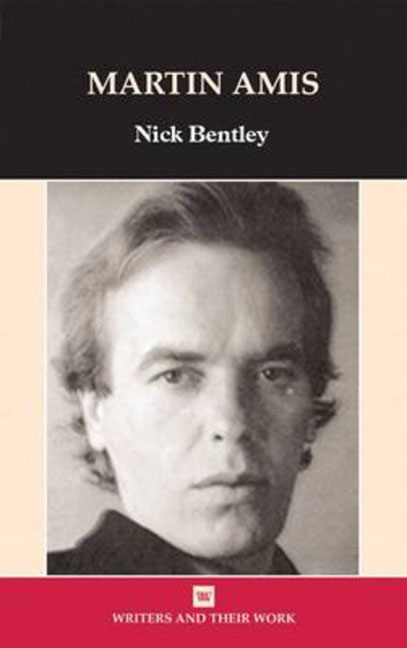Book contents
- Frontmatter
- Dedication
- Contents
- Acknowledgements
- Biographical Outline
- Abbreviations
- Introduction
- 1 Amis and Father: The Rachel Papers and Experience
- 2 Class Acts: Dead Babies and Success
- 3 Metafictional Mysteries: Other People and Money
- 4 Millennial Fictions: London Fields and Time's Arrow
- 5 Mid-Life Crises: The Information and Night Train
- 6 The Wild Dogs: Yellow Dog and House of Meetings
- 7 Cast of Crooks: The Pregnant Widow and Lionel Asbo
- Notes
- Select Bibliography
- Index
Introduction
- Frontmatter
- Dedication
- Contents
- Acknowledgements
- Biographical Outline
- Abbreviations
- Introduction
- 1 Amis and Father: The Rachel Papers and Experience
- 2 Class Acts: Dead Babies and Success
- 3 Metafictional Mysteries: Other People and Money
- 4 Millennial Fictions: London Fields and Time's Arrow
- 5 Mid-Life Crises: The Information and Night Train
- 6 The Wild Dogs: Yellow Dog and House of Meetings
- 7 Cast of Crooks: The Pregnant Widow and Lionel Asbo
- Notes
- Select Bibliography
- Index
Summary
‘The ideal reader, regards the writer's life as just an interesting extra’ (E 117)
When Martin Amis produces a new novel a certain fizz of excitement circulates the literary establishment. The reviewers line up to either trounce or laud his new offering, and cultural commentators feel bound to offer judgements on the cultural politics of his latest book. This reputation has been built over forty years and he continues to be one the most important, well known and influential of contemporary novelists. His fiction has influenced a generation of writers, and many new novelists (especially young male writers) have often found themselves judged against the Amis standard. Amis himself has been influenced by dominant trends and thematic concerns in contemporary writing, and his novels engage with social, cultural and political changes with a satirical bite that is often as brilliant as it is frustrating. He has been associated with different literary modes throughout his career, in particular, postmodernism, state of the nation satire, pornography, parody, the mixing of high literary style with popular cultural forms, and even sentimentalism. In many ways a discussion of his fiction dovetails with the trajectory of British fiction over the last forty years generally, and a close look at his novels produces a yardstick with which to measure several key cultural debates and anxieties over the period.
He is also one of the most controversial of contemporary writers. From accusations of misogyny on the publication of London Fields in the 1980s, to Islamaphobia in some of his writings after 9/11, to more recent inflammatory comments on an ageing population, and patronizing representations of the British working class, Amis has continued to provoke and often offend in his fiction and cultural commentary. His style is purposely controversial and one of the legacies he has bequeathed to contemporary fiction is the interrogation of serious moral and ethical situations couched in a style of dark satirical comedy that appears at first to be wholly inappropriate. From the presentation of an over-cocky teenager in his first novel The Rachel Papers, to the opening of his most recent, Lionel Asbo, in which the reader is introduced on the first page to perhaps the only example in literary fiction of a grandmother– grandson sexual affair, his method could be said to stimulate controversy through exaggerations.
- Type
- Chapter
- Information
- Martin Amis , pp. 1 - 6Publisher: Liverpool University PressPrint publication year: 2010



